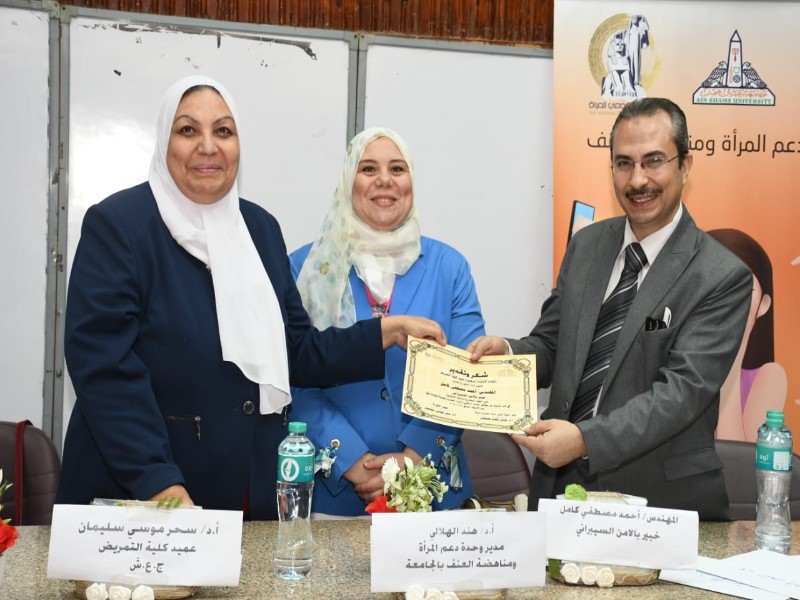The Women Support and Anti-Violence Unit continues the activities of the awareness initiative against the dangers of digital violence at the Faculty of Nursing
The Community Service and Environmental Development Sector at the Faculty of Nursing, Ain Shams University, in cooperation with the Women's Support and Anti-Violence Unit at the university, organized an awareness seminar on the dangers of digital violence as part of the initiative adopted by the unit during the first academic semester 2024-2025 under the auspices of Prof. Mohamed Diaa Zain El-Abedeen, President of the University, Prof. Ghada Farouk, Vice President of the University for Community Service and Environmental Development Affairs, Prof. Sahar Moussa, Dean of the Faculty of Nursing, and under the supervision of Prof. Hiam Tantawy, Vice Dean of the Faculty for Community Service and Environmental Development Affairs, Prof. Hend Al-Hilali, Director of the Women's Support and Anti-Violence Unit at the University.
During her opening speech, Prof. Sahar Moussa, Dean of the Faculty, stressed that electronic violence has become one of the most prominent issues of the era, as the use of technology has become an integral part of human life in various specializations.
She explained that preventing falling into the nets of electronic fraud has become one of the most prominent security priorities, which requires everyone to be careful to protect their personal information and preserve their privacy from hacking.
Prof. Hayam Tantawi, Vice Dean for Community Service and Environmental Development, pointed out that the need for such an initiative is no longer limited to students and academics only, but includes the entire community.
The initiative contributes to providing information on ways to protect and prevent cyber violence problems, including preserving personal information. She praised the university's efforts, through the Women's Support and Anti-Violence Unit, in spreading the initiative's goals to confront digital breaches, and educating individuals about the mechanisms and methods of confronting them, in addition to directing them towards the correct behavior in the event of digital blackmail.
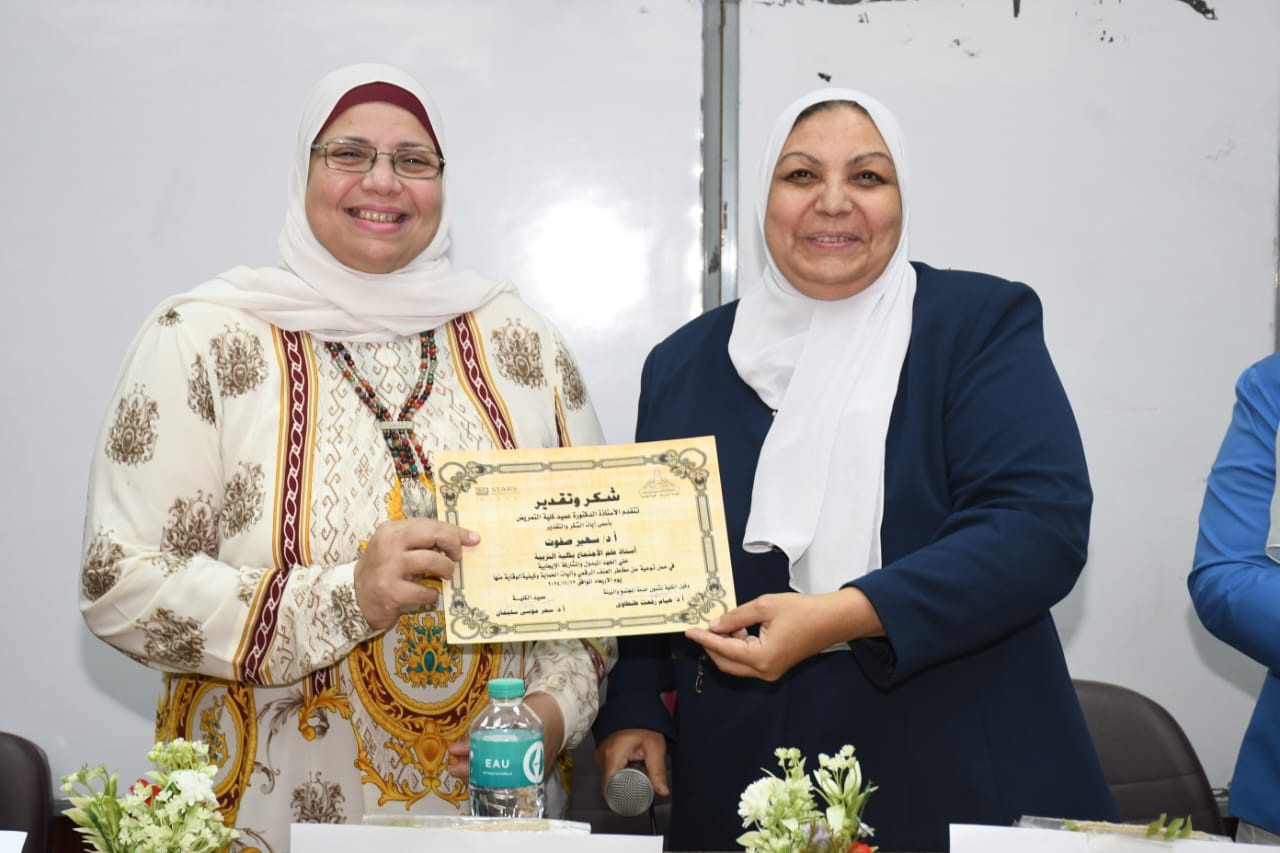 |
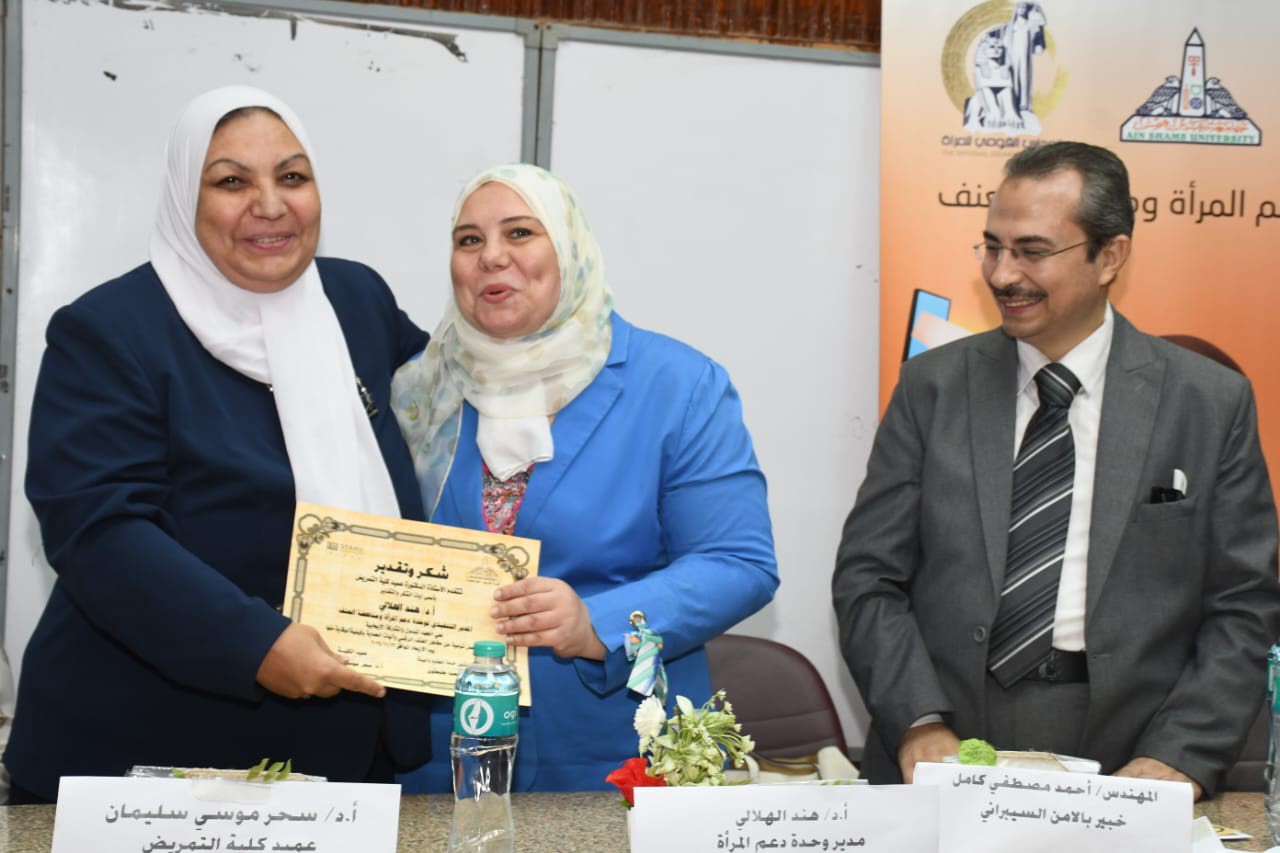 |
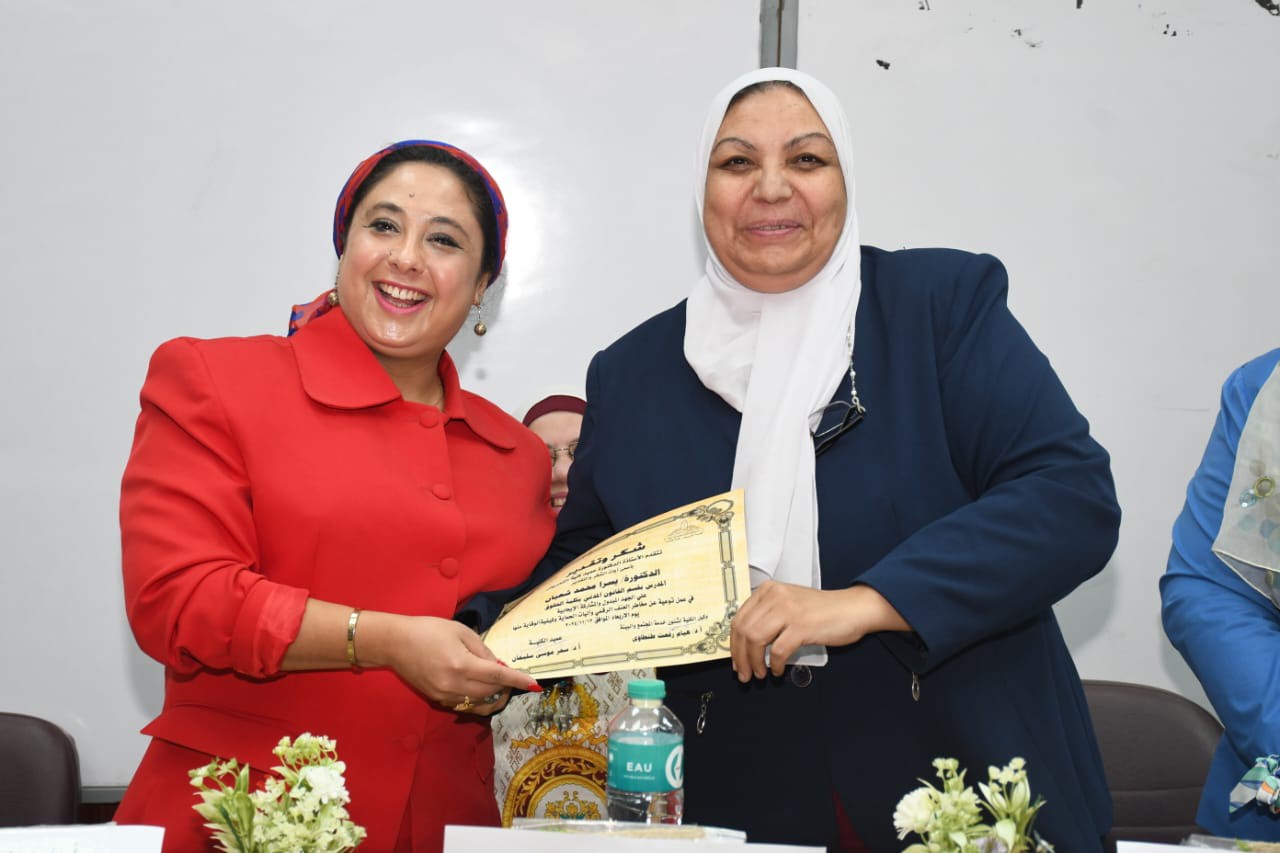 |
||
Prof. Hind Al-Hilali, Director of the Women's Support and Anti-Violence Unit, also stressed that Egyptian society needs to be restored in terms of realizing the important role played by the family, especially the mother and her role in caring for the family. Therefore, protecting women comes with the support of men and providing all methods of care and defending them, whether they are sisters, colleagues or wives. Therefore, the symposium targets university youth in general, young men and women. She added that the symposium aims to introduce students to how to deal with digital violence and not fall prey to some mentally ill people and use legal means to confront exposure to electronic violence, as well as to introduce the university's efforts and its role in protecting its students, and in the event of digital violence against someone outside the university, the hotline available to deal with these electronic crimes can be contacted.
During the day's activities, Prof. Sohair Safwat, Professor of Sociology at the Faculty of Education, discussed a number of studies that confirm through their numbers that women use social media more, and therefore many measures must be taken to confront any digital violence they may be exposed to through social media platforms and electronic devices, and presented the characteristics of electronic violence and indicated that electronic violence transcends time and space boundaries.
She reviewed the types of violence related to women and men and the social aspects that women face when dealing with electronic violence or bullying and its repercussions on their psychology and how to confront it in an appropriate manner by documenting conversations that include acts of violence and calling the National Council for Women's hotline at 15115.
While Dr. Yosra Shaaban, a lecturer in the Civil Law Department at the Faculty of Law, reviewed the legislative framework for digital violence in Egypt, including the Anti-Information Technology Crimes Law No. 175 of 2015, its articles and the penalties imposed by the laws on those who exceed the limits of the law, the Personal Data Protection Law No. 151 of 2020, which aims to protect the right to privacy, and the Penal Code, which punishes verbal and electronic harassment. She reviewed the steps and procedures that must be taken in the event of exposure to any personal or electronic blackmail by preserving evidence, notifying the competent authorities, securing electronic accounts and devices, and communicating with supporting entities, including the first unit at the level of Egyptian universities, the Women's Support and Anti-Violence Unit at Ain Shams University.
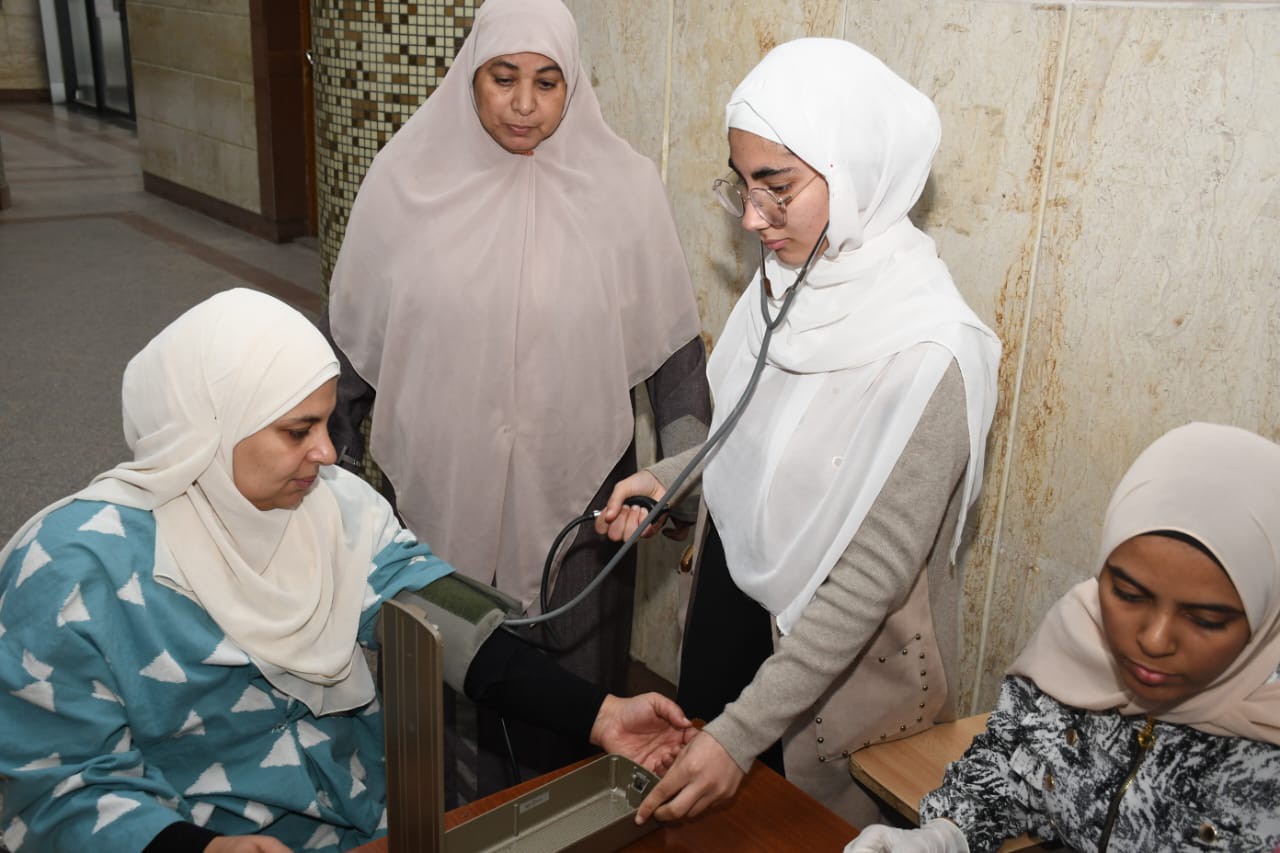 |
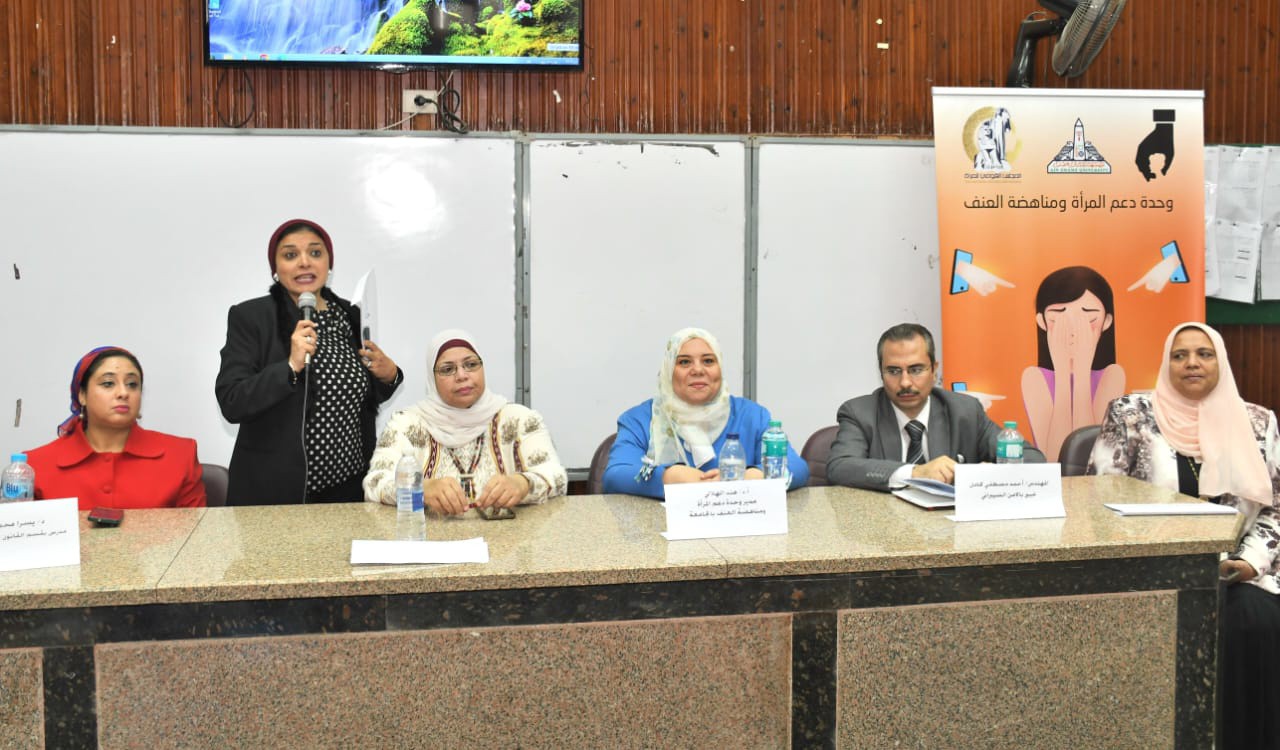 |
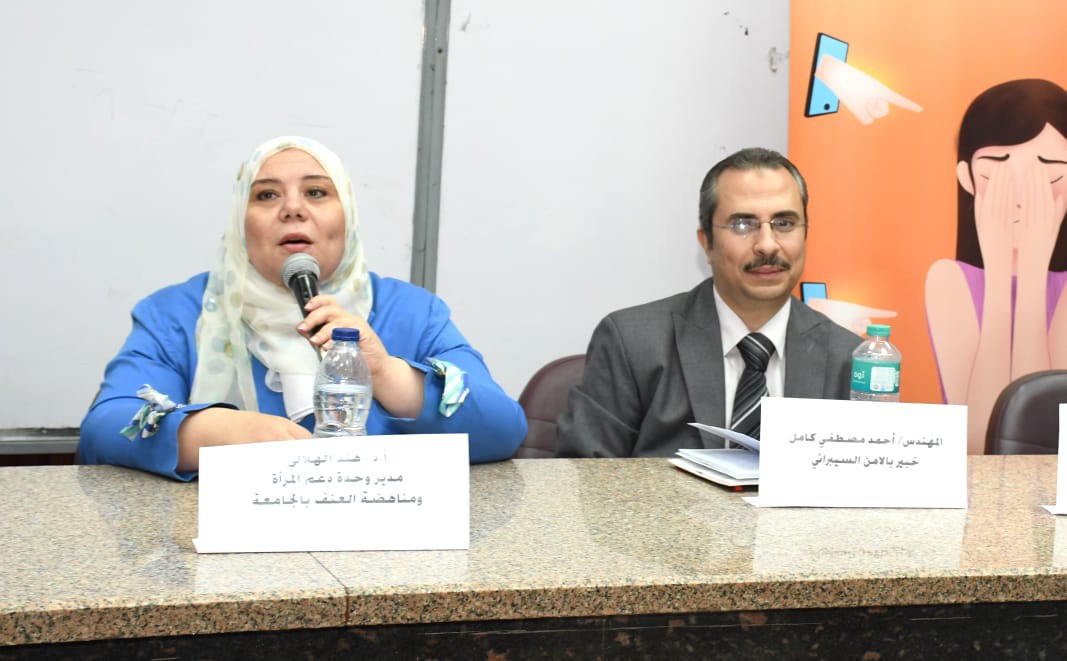 |
||
Engineer Ahmed Mustafa, Communications Engineer at the Egyptian National Media Authority, defined cyber security as preventing unauthorized access to information, changing it, damaging it, or blackmailing its owner through it, as cyber-attacks work through spying and obtaining information and obtaining money or requesting in exchange for returning the data or in exchange for control.
He stressed that publishing private photos on social media sites is not a mistake, but rather a danger, as artificial intelligence programs are capable today of creating fabricated photos and videos capable of destroying the Egyptian family if used incorrectly by Internet hackers. He also reviewed how algorithms work and how they work and the appearance of advertisements according to the user's interests, as well as the powers that we agree to by entering a site and we do not realize their impact in the short term. He reviewed the virus of phishing messages and fraudulent links that are sent with a link attached, which is a time bomb that allows its sender to completely hack the device, warning against opening those links.


.svg)

